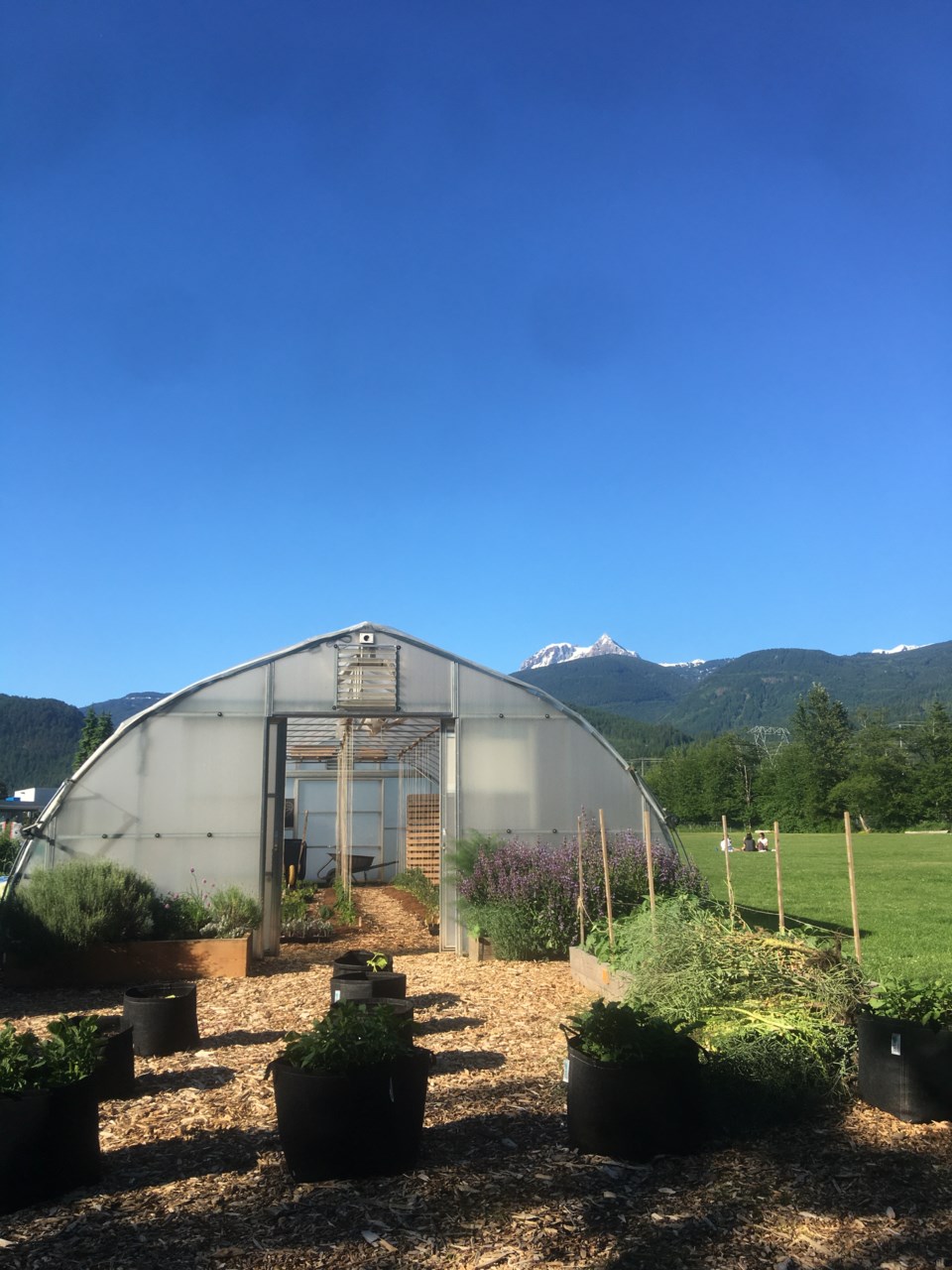Fresh, local, organic vegetables at an affordable price?
It almost sounds too good to be true. But that’s exactly what the Squamish Climate Action Network (CAN) is selling as part of its summer farm stand fundraiser at Mamquam Elementary every Tuesday from 2:30 to 5:30 p.m. all season long.
“[It’s] a fundraiser. We’re looking to just support the continuation of our [edible schoolyards] gardens,” said Gabrielle Languedoc, community organizer with Squamish CAN. “But we also want to make sure it’s accessible and affordable … Part of our mission at Squamish CAN is to build and strengthen inclusive food systems.”
The edible schoolyards program started back in 2015 at Mamquam Elementary School with 30 raised garden beds, a garden shed and a vertical garden, all irrigated. In 2018, the program expanded to include a greenhouse.
“That’s what’s allowed us to start growing food earlier in the season and expand our outdoor classroom,” Languedoc said.
Then, in 2019, the program grew to a smaller site at Valleycliffe Elementary. “It’s really cute,” Languedoc said. “We’re hoping to open the Don Ross Edible schoolyard soon.”
In the meantime, food grown at those two locations is sold at the farm stand, with funds going back into the program for things like soil, seeds, repairs and a new irrigation system.
While students might have only seen the fruits (or vegetables) of their labour recently, the half-hour weekly lessons for Kindergarten to Grade 6 go on year round.
“During the winter months, the edible schoolyard looks more like lessons based on collecting seeds and processing of food,” Languedoc said. “It’s connected with the season — stuff you’d do in a garden to get it ready for spring. We have a greenhouse manager and she starts growing food in early spring then we have a big plant sale as a fundraiser.”
Once spring hits, the program leads kids through the process of sowing seeds, working with soil and growing the vegetables. “In the last few weeks, they’ve been enjoying salads—and they’re learning how to prepare meals with the food they grow. It’s cool for them to see the whole cycle,” Languedoc added.
In the process, they’re also learning about food waste.
“The kids are so connected with the food they’re eating, even if a bug has bitten into a leaf, because they grew it themselves, they’re more likely to eat it,” she said. “It teaches about food waste — how grocery store vegetables look perfect. Growing organic, it might not be the most beautiful product, but it’s safe to eat.”
More recently, students at both schools added a pollinator hotel to their garden, complete with mason bees. “Now they can watch the pollinator hotel with the bees nesting, then, in the fall, when they come out of the nests, they’ll get to experience that too,” Languedoc said.
While students play a role in growing the food, Squamish CAN takes the helm of the weekly farm stand sale.
The produce ranges each week from fresh greens to root vegetables, Indigenous flowering plants to fruits.
“It’s nice food people can get for very cheap,” Languedoc said.
For more information, visit squamishcan.net/edible-school-gardens.



